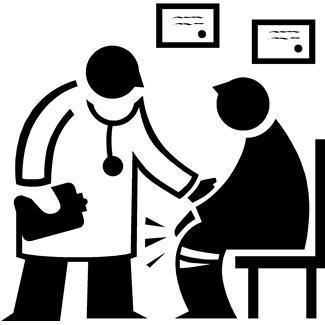 Stress adversely affects every aspect of your life, from your health to your relationships. Many people don’t realize how stressful their lives are, and they don’t know how to deal with or reduce their stress. Let’s explore seven ways to improve your life by beating stress.
Stress adversely affects every aspect of your life, from your health to your relationships. Many people don’t realize how stressful their lives are, and they don’t know how to deal with or reduce their stress. Let’s explore seven ways to improve your life by beating stress.
Determine your stressors.
We all have different areas of our lives that cause stress. While you may not be able to change stressful situations, by identifying your stressors, you can develop a plan to deal with them as effectively as possible. For example, if work causes stress, you can go to the gym after work to release tension with a workout, or leave the building for lunch to get away from your desk for a few minutes.
You might be able to change your response to stressors by altering the situation to make it easier to bear. For example, if visiting the doctor during the day is stressful because you need to go to work afterward, perhaps you can meet the doctor in the evening or on a weekend day. If you become agitated during rush hour traffic, try a new route or travel at a different time.
Avoid people, places, and things that upset you.
We all have people who make us uncomfortable or tasks we dislike doing. When those aggravations become stressful, it’s time to take matters into your own hands. Rethink whether it’s necessary to have dinner with the neighbor who criticizes your cooking. Perhaps it makes sense to find an accountant to do your taxes or a detailer to wash your car. Delegating tasks and avoiding stressful people not only reduce your stress, but they also give you a marvelous feeling of freedom.
Know your limits.
Be realistic about your time and what you can do, and say no when you need to. When you’re at your limit, additional items on your to-do list become stressors. Stand your ground and be assertive when you need or want to say no.
Give yourself a treat.
Integrative therapies such as massage, reflexology, and aromatherapy help to reduce stress, lower blood pressure, and relax you. They’re also fun and rejuvenating. Find a certified practitioner or visit a spa, keep an open mind, and give it a try.
Turn off the noise.
Unplug and spend at least 30 minutes alone and quiet every day. We’re all bombarded by technology and advertising, and it’s overwhelming. When you get away from the constant noise, you’ll feel your stress melt away. Spend that time doing what you enjoy, whether it’s a walk or a hot bubble bath. Unwind and enjoy.
Tune out negativity.
Do you really need to watch the 10 pm newscast each night or read the paper every day? The news is mostly negative, which raises your stress levels. Your mind doesn’t need any more input on weather disasters or the latest political upheavals around the world. Don’t take on the world’s problems as your own. Rather than watch the news, find a comedy or cartoon to watch. Better yet, turn off the TV and read a book.
Experiment to find your best release.
Some women relieve stress by laughing or crying, and others find exercise or art to be their release valve. You may need to try a few different outlets to relieve stress, such as watching classic TV comedies, renting a movie that makes you cry, painting, or going to the gym. You may find one perfect stress reliever, or you may decide a combination of activities helps.
As you work through your stress, stay positive. Negativity is an unhealthy stressor and can creep into areas of your life that aren’t stressful. An upbeat attitude will do wonders to combat stress and help you feel healthy and at your best.
What do you do to combat stress?
















